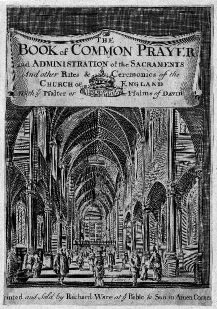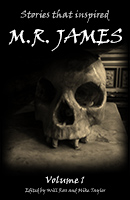 This episode Mike & Will put on their golden pince-nez and crack the spine of ‘The Uncommon Prayer-book’ by M.R. James!
This episode Mike & Will put on their golden pince-nez and crack the spine of ‘The Uncommon Prayer-book’ by M.R. James!
Big thanks go to our reader for this episode, Debbie Wedge.
Questions answered during this episode:
- Is M.R. James an anti-semite?
- Is Mr Poschwitz the Germanic Lovejoy?
- How much snakebite is too much snakebite?
Show notes:
- Michael Cox / Pleasing Terror story notes (amazon)
M.R. James’ biographer Michael Cox has written some very useful notes for this story which can be found in the Oxford Classics edition of ‘Casting the Runes and Other Ghost Stories’. Another set of notes can be found in the ‘Pleasing Terror’ M.R. James anthology. - ‘The Books, Manuscripts and Literary Patronage of Lady Anne Sadleir (1585-1670)’ by Arnold Hunt (Google Books)
This essay features in the volume ‘Early Modern Women’s Manuscript Writing: Selected Papers from the Trinity/Trent Colloquium’ contains a wealth of information on the real life individual on who provided M.R. James with the inspiration of this story. - Info on this story, Lady Sadleir and Anti-Cromwellian editions of the book of common prayer (Two Nerdy History Girls)
Information often turns up in unexpected places, like here in the comments section of a competely unrelated article about Guy Fawkes! Scroll down to the thread of comments starting with Chris Woodyard for some interesting speculation on the inspiration for this story. - Stereotypes of Jews in Literature (Wikipedia)
Anti-Semitism has been rearing it’s ugly head in literature for centuries. Was M.R. James jumping on the Hebrew-bashing bandwagon? We think not but this info on how Jews have been portrayed in literature over the years is certainly eye-opening. - “M.R. James, Antiquarian Sleuth: William of Norwich, Thomas of Monmouth and the Blood Libel” by Steve Duffy (Ghosts & Scholars)
This excellent article goes a long way to debunk the suggestion that M.R. James was harbouring anti-semitic tendencies by discussing James’ work to debunk the ‘Blood libel’ myth through close examination of the truth behind the martyrdom of William of Norwich. - Paul Lowe’s illustration of this story (Trashotron.com)
Perennial M.R. James illustrator Paul Lowe produced a horrifying conception of what the flannel creature from this story may have looked like (scroll to the bottom of the page to find it). - The Book of Common Prayer (wikipedia)
Here you can read about the troubled history of the Book of Common Prayer, the first book to publish the forms of common Christian worship in English. - Psalm 109 (rmjs.co.uk)
Here you can read the full Book of Common Prayer version of Psalm 109, in all it’s doom-laden glory!
Podcast: Play in new window | Download
Subscribe: RSS
Tags: Anti-semitism, Book of Common Prayer, Brockstone, Ghost Story, Horror, Lady Anne Sadleir, Lady Sadleir, Longbridge, M.R. James, Montague Rhodes James, Mr Donaldson, Mr Henderson, Mr Homberger, Mr Poschwitz, Psalm 109, The Uncommon Prayer-book








Pince-nez is pronounced “Pants? Nay!”
Kudos to the reader for turning the Jamesian comedy yokel up to 11.
Thank you for another interesting and informative podcast. I’ve come to rely on them for entertainment while I stack and price books.
I’m glad that you’ve covered this story. I never thought the wallop was as frightening as the grisly abominations in James’ other stories, but the characters were well developed and the plot was interesting for being unique.
P.S. I wish I had seen the “Lovejoy” program you keep decrying. I’m curious what could inspire so much contempt.
I suspect that the greedy and perhaps-Jewish Germanic merchant is, at worst, just as much a stock character as the idiotic yokel or servant who shows up all over James’s work.
Congratulations to Debbie – that initial psalm reading was excellent!
As every, a very enjoyable podcast. Was this Monty’s first story for an American publication? I thought it was interesting that he chose such a very specific bit of English history around which to base a story for an overseas audience. It so splendidly Jamesian that the reader is expected to having a working knowledge of mid 17th century English political and ecclesiastical history as well as knowing the contents of particular psalm. I had to go and look that one up. You can’t beat the King James Bible for a bit of sturm und drang. I do appreciate a short story that requires you to read around the subject. Learning is fun, kids!
I agree the wallop is diluted by the third person narrative, particularly as the person is question is another of James’s cock-er-ney stock characters. Seeing it through a glass door reminded me of the bit in Lost Hearts when the young protagonist sees the corpse in the bath. That scared the wossnames out of me when I first read it. Mind you, I was about 11 when I came across that story so maybe this would have scared me too back then.
I remember reading this and not being too impressed. It started out quite nicely, but I found the whole thing kind of unexciting and I feel the wollop sort of came out of nowhere. It was never hinted at that something THAT terrible would be the result. There wasn’t a whole lot of weirdness in it, in my opinion.
But after listening to the podcast, especially this one, I’m developing a fondness for the little microcosm of British ecclesiastic and scholarly avenues James wrote of.
And I agree James wasn’t anti-semitic or anything, it was just a stock foreigner kind of thing or an amusing caricature. If it was for an American publication, perhaps there was a less kind attitude towards the German people over there during the time?
As my web address might indicate, I’m Jewish, and I tend to notice antisemitism; but I never suspected MRJ of it. I’ve always taken Mr Poschwitz/Henderson/Homberger to be a prediction of the standard Goon Show German – particularly in his ludicrous attempts at speaking English. I agree that it’s not one of James’ best stories – surely the villain deserved a more graphic end, as he was (unlike other James characters) a thief.
Incidentally: the hymn crops up also in “The Stalls of Barchester Cathedral”, if I remember rightly.
I’m can’t say I’m familiar with Lovejoy, but, being a probable German with funny little glasses, I pictured him in my mind as the German guy from Raiders of the Lost Ark.
Then he got gruesomely killed by haunted artifacts that then got packed off to storage by the authorities.
Whether Poschwitz is supposed to be Jewish or not is probably hard to say for sure, but it does seem possible. In general, I’d say that whether or not one considers James an anti-Semite depends on what you measure him against. He was very much a conservative – he opposed the admission of women to Cambridge, for instance, which puts him in a worse light than many of his academic contemporaries. When it comes to anti-Semitism, I think it’s possible to be against the blood libel and still have some of the traditional prejudices of your time and class. James’s stories don’t seem to bear any particular spite towards women, for instance; he just seems to like his comfort zone to remain the way it always has, which is to say male, upper-middle class and ethnically homogenous. And ethnic homogeneity means white and Gentile.
I think if he were around nowadays, he’d be one of those people who agrees that civil unions are all very well, and of course gay people should have equal rights in employment and so on, but really it’s silly to suggest that same-sex couples could get married. One of those people who really doesn’t have any deep objection to members of the minority and is perfectly nice to any that they know, and not hateful by nature, but fond of his familiar traditions to the point where he didn’t always recognise that some traditions are open to hateful use and more honoured in the breach than the observance.
And of course, it’s his love of traditions that makes his ghost stories so rich, and he seems to have loved traditions with a genuine candour, a sincere affection that wasn’t finding excuses for prejudice but was a real love. It’s perhaps a virtue that blinds you to certain vices.
So is Poschwitz supposed to be the malevolent Jew of folklore? Personally I wouldn’t put it past James; he was certainly a snob about anyone outside his usual circle and he relied on the stereotypes available to him when it came to character writing, but I wouldn’t conclude from this that he was trying to perpetrate a blood libel of his own.
Just a point which may reduce the strength of the argument that mrj was anti semetic. I remember reading an article in history today debunking the theory that cromwell was responsible for allowing the jews back to england. Apparently there’s no evidence.
However, a question remains why did mrj choose this particular background for the villain
In describing the thing which attacks Poschwitz, the podcast says it has “sort of a band” (paraphrasing) under its chin. Surely this is the cloth used to die a corpse’s mouth shut, lest muscular contraction cause it to come open grotesquely during the funeral. Jacob Marley famously is described as having one of these. (And you thought he had a toothache…)
I’m still reeling from this episode. The MRJ-Lovecraft nexus, OMG!!! If I were [coughcough] years younger at this moment I’d be feverishly pounding out volumes of increasingly peculiar and self-referential fan fiction. This winter I intend to watch Lovejoy in a dark room lit only by candles, sipping sherry, and seeking out the hidden (suppressed?) Jamesian whallops(tm) therein.
It didn’t occur to me that Poschwitz might be Jewish until I heard the (excellent, as ever!) podcast. I’ll just add that you’re right that James would have been familiar with Dickens’ villainous Fagin, but he also must have known Dickens’ saintly Jewish character Riah, from ‘Our Mutual Friend’. I’ll close with a funny joke about a donkey which you may have heard before… 😉
I know that this isn’t in the same league as M. R. James, but did you know that John Bellairs used Staunton Harold as a setting for his ghost story “The mummy, the will, and the crypt”?
There was a certain von Tischendorf, whose involvement with the “discovery” (= theft) of the Codex Siniaticus is explained in the Wikipedia article on the Codex. MRJ must have known this story, which dates from 1844.
Re: the curious way Mr. Poschwitz ends a sentence with “ain’t it?” I just ran across another story where speakers use that sentence-ending, and, what do you know, the characters are Jewish. It was in one of Montague Glass’s comic “Potash and Perlmutter” stories, featuring Jewish characters who work in the New York clothing trade.
Information on Montague Glass and the stories:
http://en.wikipedia.org/wiki/Montague_Glass#Potash_.26_Perlmutter
Several of the stories are available at Project Gutenberg:
http://www.gutenberg.org/ebooks/author/7845
A few examples, so you can compare the usage with Mr. Poschwitz’s:
“Excuse me, but what does Binder & Baum know about the Freedom of the Seas?” Abe demanded. “They are in the wholesale pants business, ain’t it?”
“You are such good friends with Mrs. Krakauer—ain’t it?”
“Maybe the boy would behave himself this time, popper,” Mrs. Zwiebel interceded. “Maybe he would attend to business this time, popper. Ain’t it?”
And here’s what Mr. Poschwitz says in the story:
‘For,’ said he, ‘we English have always this marvellous talent for accumulating rarities in the most unexpected places, ain’t it?’
Two more thoughts. First, that the family are not planning to sell the books. They (understandably) don’t fancy having them back, so store them in a safe-deposit in town. Lady Sadleir, having turned into a layer of dust, is no longer a threat. She won’t, therefore, turn up again in the safe-deposit box. The other point is that the stereotype Jewish “Isn’t it?” or “Ain’t it?” is in fact German, and not necessarily Jewish, though you do see it attributed to Jews sometimes, as Joyce points out. Also, thanks to the ministrations of Herr Hitler, German-speaking Jews were much more numerous here after MRJ’s time. Enough, already!
In the BBC radio series The Scarifiers, one of Professor Edward Dunning’s friends keeps Cromwell’s head on his mantelpiece.
I don’t read it as Homberger trying to disguise his origins, but to fit in in his adopted country. There was something of a tendency at the time to mock immigrants who adopted British turns of phrase (there’s an outstanding one in the old Paul Temple radio series in which a man with a thick foreign accent is laughed at behind his back for constantly calling Temple “old man”), very much in vein of mocking working class people for attempting to appear middle class, and the humiliation of “commoners” who attempt to fit in with the gentry. Immigrants are all very well when they’re aristocracy, of course, but should know their place otherwise. Apparently.
Another excellent Podcast on a story by Monty which has, in my view, been very much neglected. A candidate for being made the subject of A Ghost Story for Christams. If Tenbury Wells – simply Tenbury before the Victorian period when, like Builth, Llangamach and Llanwrtyd over in Wales, it received the suffix of Wells because its waters were supposed to be health bringing – is the setting for Longbridge, then perhaps Woofferton Junction a couple of stops down the line was the location for Kingsbourne Junction.
It’s perfectly true that Monty’s stories are dotted with archetypal thick country yokels expressing their utterances and words of wisdom in suitably ungrammatical dialects but I, for one, think this idea that Monty was being anti-Semitic is reading far too much in to this story. Remember, he wrote these offerings for entertainment. And they should be read as such, and as of their period. Reading into them the mores of the present does them a grave disservice and these days people are far too quick to take offence where none was meant or ever intended.
The possibility that Monty had in mind Staunton Harold and its church and so the Shirley connection is interesting and a novel idea. As you observe Sir Robert was not as fortunate as Lady Sadleir but, in my view, it is she, NOT Oliver Cromwell, who exacts her revenge at the end. After all, why would Cromwell want to protect the Book of Common Prayer – being a product of a Church he reviled as insufficiently reformed?
Where the whole story falls down is at its denouement, which is far too contrived. And not believable. It’s almost as if having brought us thus far, Monty either got bored or didn’t know how to draw the strands together which, given a little more thought, he could so easily have done and in a far more believable way.
No, I don’t think there was any intention to flog the prayer books by placing them in safe keeping; merely to avoid any further interference with them by those ill disposed. Something with which I am sure Lady Sadleir would have been well pleased. As for the identity of Brockstone, I would venture to suggest that the “New Chapel” at Brockhampton, close to Bromyard, which lies but a few miles south of Tenbury, is a possibility.
One of my favourite stories.
What is Gregory singing? There’s nothing on Youtube, and Google only returns the term in a single usage in a book from the 19th century. Can anyone help me out?
Meant to be the humorous way a country person might refer to Gregorian Chant